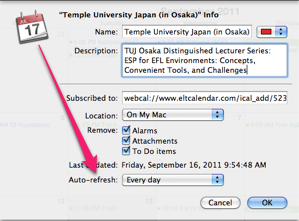Nagano JALT:
�Chubu English Language Education Society Conference
Date: Sunday, June 25th, 2017 Time: 10:50 AM - 12:00 PM
Speaker: Naoyuki Naganuma, Tokai University
Description:
Under the current discussion for the direction the MEXT committees are taking for both primary and secondary education, deep learning, dialogical (collaborative) learning, and active (autonomous) learning are developing as the three key concepts in their plan. The MEXT committee's curriculum direction is not limited to the area of foreign language, but includes all subject areas. The idea of deep learning is often discussed with the development of cognitive (thinking) skills, which naturally require sophistication of language and content, but we may need to consider the needs of thinking activities even at the lower language proficiency level when one thinks about the role tertiary level education plays.
The CEFR (Common European Framework of Reference) is now attracting more and more attention over the world as a reference of second/foreign language development describing skills ranging from more familiar basic communicative ones to more academic or professional ones, but what can the majority of A2 (way-stage) and even A1 (breakthrough) level learners learn beyond BICS (Basic Interpersonal Communication Skills)? How can we foster their CALP (Cognitive/Academic Language Proficiency)?
The CLIL (Content and Language Integrated Learning) approach seems to be one of the possible solutions. We can design our language tasks gradually shifting the focus from LOTS (lower-order thinking skills): remembering, understanding and applying to HOTS (higher-order thinking skills): analyzing, evaluating, and creating. We need to scaffold not only their language skills but also their thinking skills to elicit curiosity and more involvement of the learners in the content they learn to activate their deeper thinking.
Another generic, non-linguistic, skill to be developed is the skill to cope with diversified society and cultures. Mutual intercultural understanding and communication are essential even among learners. The INCA (Intercultural Competence Assessment) framework describes six key competences from the points of openness (respect for otherness and tolerance of ambiguity), knowledge (knowledge discovery and empathy) and adaptability (behavioral flexibility and communicative awareness) in three levels (basic, intermediate and full). Informational and relational aspects are two sides of the same coin of language communication, and we cannot ignore the importance of rapport management when we pursue language tasks. Critical cultural awareness helps us to think more logically, and from various perspectives, while empathizing with others. Thus it is necessary to sophisticate both cognitive and intercultural competences in this rapidly globalizing world.
Naoyuki Naganuma, Ph.D., is a professor of the International Education Center at Tokai University. He got his doctor's degree in 2006 from Tokyo University of Foreign Studies. His research interests are mainly on language learning motivation and language testing, especially can-do oriented assessment to promote learning and motivation. He was a committee member of MEXT for setting learning attainment targets in the form of can-do lists in foreign language education.
There will also be presentations by local members, Greg Birch and Dr. Sue Fraser, as well as a panel discussion about team teaching. Visit the Shinshu JALT website for more information.
Organization: Nagano Chapter (formerly the Shinshu Chapter) of the Japan Association for Language Teaching (Nagano JALT)
Cost: 1,500 for 2-day conference
Venue: Shinshu University, Faculty of Education (map)
Location: Matsumoto City, Nagano Prefecture, Japan
![]() Add this to iCal
Add this to iCal
![]() (Need help?)
(Need help?)
![]() Add to Outlook
Add to Outlook
![]() (Need help?)
(Need help?)
You can add this event to your iCal calendar.
- Click on the iCal icon. Your iCal software will start.
- Click 'Subscribe':

- Under 'Auto Refresh', select 'Every day' in case the the basic details change:

You can add this event to your Microsoft Outlook calendar.
- Click on the MS Outlook icon.
- See what happens.
- Tell us what happens. I don't have MS Outlook on a Windows computer, so I can't test it.
- If you click on the icon and nothing happens, do this:
- Right-click on the icon and save the file.
- According to Microsoft's support page, in Outlook's File menu, you should click Import and Export.
- Click to select Import an iCalendar or vCalendar file (*.vcs), and then click Next.
- Click to select the vCalendar file you've just saved, and then click Open.
Contact Nagano JALT
Website: naganojalt.wordpress.com
Email QR Code:





